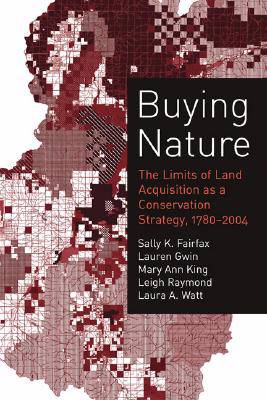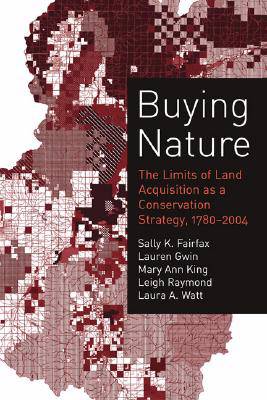
- Retrait gratuit dans votre magasin Club
- 7.000.000 titres dans notre catalogue
- Payer en toute sécurité
- Toujours un magasin près de chez vous
- Retrait gratuit dans votre magasin Club
- 7.000.0000 titres dans notre catalogue
- Payer en toute sécurité
- Toujours un magasin près de chez vous
Buying Nature
The Limits of Land Acquisition as a Conservation Strategy, 1780-2004
Sally K Fairfax, Lauren Gwin, Mary Ann King, Leigh Raymond, Laura A WattDescription
Buying land to conserve it is not a recent phenomenon. Buying Nature chronicles the evolution of land acquisition as a conservation strategy in the United States since the late 1700s. It goes beyond the usual focus on conservation successes to provide a critical assessment of both public and private land acquisition efforts.
The book shows that for more than 200 years, both private purchasers--such as the Nature Conservancy and the Trust for Public Land--and governmental agencies have acquired land for conservation. It documents trends of growing complexity in transactions and a blurring of public and private roles. The preservation of Mount Vernon and its grounds, for example, began with a private group--the Mount Vernon Ladies Association of the Union--and continues today with a mosaic of private, state, and federal actors. The current emphasis on private land trust acquisitions, the authors argue, may undercut other effective governmental efforts to preserve the environment and may not be the best way to meet conservation goals. Buying Nature emphasizes the accountability issues that arise when the line between public and private efforts is indistinct. The authors also pay unique attention to how federal land agencies' individual histories shape their participation in modern land acquisition transactions. An unusual mix of scholarship, the book combines political, legal and constitutional, and economic history with rich case studies of land conservation and quantitative analyses of acquisitions over time to provide a new and distinctive perspective on enduring questions of public policy and environmental protection.
Spécifications
Parties prenantes
- Auteur(s) :
- Editeur:
Contenu
- Nombre de pages :
- 360
- Langue:
- Anglais
- Collection :
Caractéristiques
- EAN:
- 9780262062480
- Date de parution :
- 12-08-05
- Format:
- Livre relié
- Format numérique:
- Genaaid
- Dimensions :
- 161 mm x 231 mm
- Poids :
- 630 g

Les avis
Nous publions uniquement les avis qui respectent les conditions requises. Consultez nos conditions pour les avis.






